
We cannot protect our patients without protecting our planet. This means a personal and professional commitment to green our activities by considering the carbon effects of how we do our work.

We cannot protect our patients without protecting our planet. This means a personal and professional commitment to green our activities by considering the carbon effects of how we do our work.
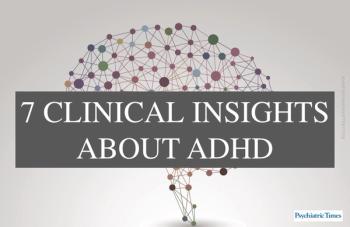
This collection summarizes ADHD as it relates to bipolar disorder and borderline personality disorders; culturally competent care for the African-American population; issues with sleep disorders; and more.

Which tool is useful to measure night-to-night variability, sleep onset latency, and sleep duration in those with ADHD?
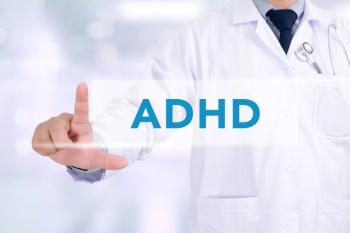
Sleep difficulties and sleep disorders are the most common comorbidities reported in individuals with ADHD. Careful assessment will lead to helpful interventions.

ADHD can present with symptoms such as irritability, mood lability, low frustration tolerance and low self-esteem, making it easily confused with mood disorders and personality disorders.
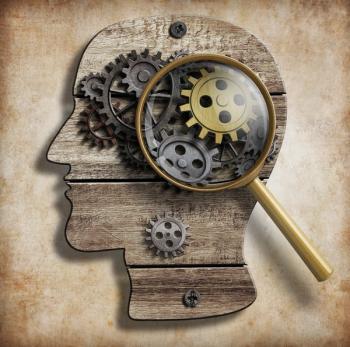
These three recent trends in ADHD neuroimaging may lead to objective tools for diagnosis as well as stimulate discovery of novel therapeutics.
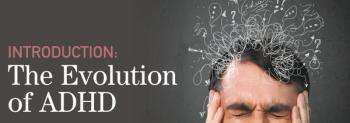
In this two-part Special Report, the authors provide evidence-based information to guide our assessment, diagnosis, and treatment of ADHD across the lifespan.

This article examines the contributory role of diet on ADHD symptoms, including how the elimination of certain foods and additives, as well as the consumption of other foods or nutrients, may impact symptoms.

Despite the proven efficacy and safety of medications for ADHD, abuse is a growing concern.

Mental health stigma has been found to be a significant factor in African-American treatment engagement. For this reason, taking steps to understand cultural considerations is key.

A structured training program for parents of children with ADHD was highly successful in ameliorating a number of behaviors and symptoms associated with the disorder.
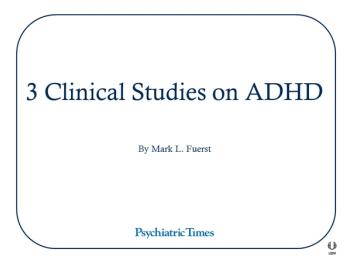
Highlights of 3 studies find that novel genetic variants for ADHD are linked to educational attainment; the prevalence of parent-reported ADHD diagnoses has not increased recently; and a video game-like intervention targets cognitive processes implicated in ADHD.
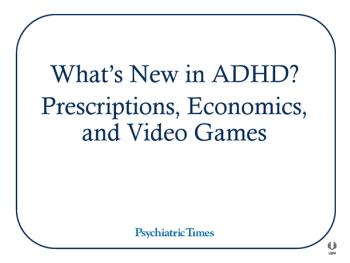
Who’s filling ADHD prescriptions now?

Pregnant women should maintain higher high-density lipoprotein levels for adequate fetal brain development and reduction of ADHD risk, according to a new study.

The latest news includes revealing tweets, ADHD medications and STD risk, and new insights from functional MRI.
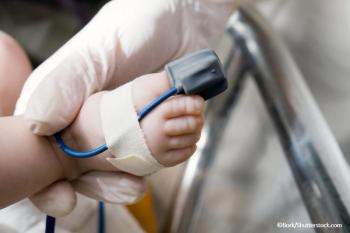
Preterm birth and low birth weight can heighten the risk by at least 2-fold.
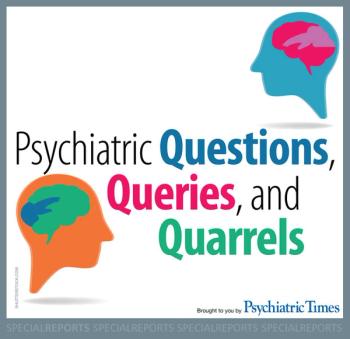
In psychiatry, hot debates abound if you just look around-and if this Special Report collection is any indication, the result is a balance of opinion and civility made richer by virtue of opposing views.

Up until her last year of training, this psychiatrist was convinced she only wanted to consult in the hospital-that is, until she met a 31-year-old expectant mother.

This article speaks to the care with which ADHD must be diagnosed and managed to reduce the significant negative impact of the disorder on the individual, family, and society.
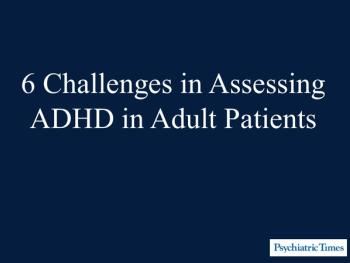
The clinical presentation and functional impacts of ADHD in adults vary greatly from their child and adolescent counterparts.

Integrative psychiatry helps us push deeper into the testing of metabolic, gut, and brain features, which seems more fitting, given our role as physicians.
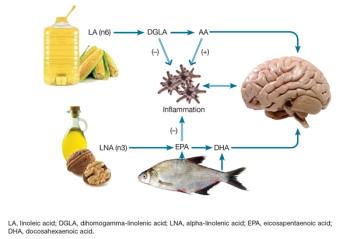
Potential benefits and benign safety profile of omega-3s indicate a promising intervention.
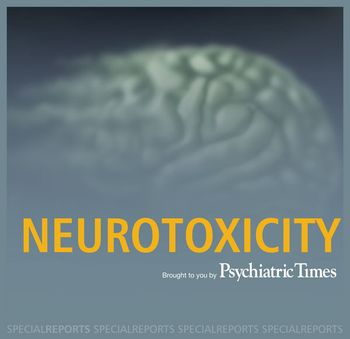
A growing body of scientific literature associates psychiatric symptoms with man-made toxic substances and environmental exposure. Practical implications for psychiatrists are discussed in this Special Report collection.

When ADHD is present, a survey of possible lead exposure can be considered, and here's why.
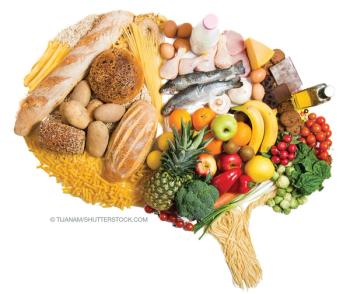
There is good emerging evidence that aspects of diet can indeed affect ADHD. Clinical recommendations here.